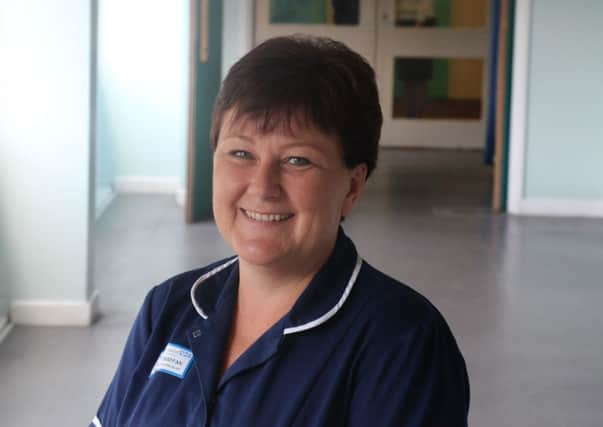Caring for innocent victims - Hartlepool and east Durham’s shocking toll of passive smokers


Non-smokers are paying the price with their health, and even their lives by merely being around smokers and not succumbing to the habit themselves.
There were 307 people diagnosed with lung cancer at North Tees and Hartlepool NHS Foundation Trust last year.
Advertisement
Hide AdAdvertisement
Hide AdNinety per cent of lung cancers are caused by smoking, with the other 10 per cent being non-smokers – with many of them never even touching a cigarette.
Health chiefs say the no smoking ban brought in 2007 will hopefully help to cut the totals in future years – but the long-term effects of the ban will take time.
Jeanette Draffan is a Macmillan lung cancer nurse specialist with the trust, which treats people from Hartlepool and East Durham, who has seen first-hand the devastating impact of smoking-related cancer.
She said: “I’ve had patients who have never smoked themselves – it’s the working environment or their relatives have smoked, and it must be tragic for them.
Advertisement
Hide AdAdvertisement
Hide Ad“I’m sure they must feel very bitter when they haven’t smoked at all, to then be diagnosed with a smoking-related disease.
“I’m sure they must feel very angry and I don’t know exactly how they are feeling, but it must be ‘who is to blame through all of this?’”
She added: “I’m sure the smoking ban will help eventually.”
Jeanette warned that despite advancements in cancer care, the number of cases was increasing.
She said the trust is only now just seeing patients who had started smoking as teenagers in the early 1970s.
Advertisement
Hide AdAdvertisement
Hide AdBut she said a lot younger patients were now coming through, where previously it was patients aged 70 and over.
“That’s worrying, because it used to be an older patient’s disease,” she said.
National statistics show that about 75 per cent of lung cancer patients die within a year of diagnosis.
Jeanette, who has been a lung cancer nurse for 12 years, said her role starts from before diagnosis.
Advertisement
Hide AdAdvertisement
Hide AdShe acts as support, and is present at that heart-wrenching moment when a patient is delivered the bombshell news they have cancer.
“The worst part of the job is probably giving that diagnosis to someone,” she said.
Jeanette added that there is never a way to prepare someone for the news, especially as most lung cancers are incurable.
“When anyone hears they have got caner you can almost hear the shutters going down and they don’t hear anything else,” added Jeanette.
Advertisement
Hide AdAdvertisement
Hide AdShe said Macmillan nurses are there to break through the medical “jargon” and explain the situation in layman’s terms.
She said she think’s anti-smoking campaigns like Fresh, which launched its Don’t Be The 1 initiative to urge smokers in the region to quit, will work.
Martyn Willmore, performance improvement delivery manager at Fresh, said: “According to Cancer Research UK, by far the biggest cause of lung cancer is smoking. It is responsible for an estimated nine in 10 of all cases of lung cancer nationally, with the vast majority of those cases occurring in smokers.
“A small proportion of those cases are caused by exposure to second hand smoke in non-smokers (passive smoking). Passive smoking increases the risk of lung cancer, but it is still much less than if you smoke yourself. We have seen the rates of people dying from most smoking-related diseases decrease significantly over the last decade, as smoking rates have fallen.”
Anyone who would like to quit smoking can get help at dontbethe1.tv